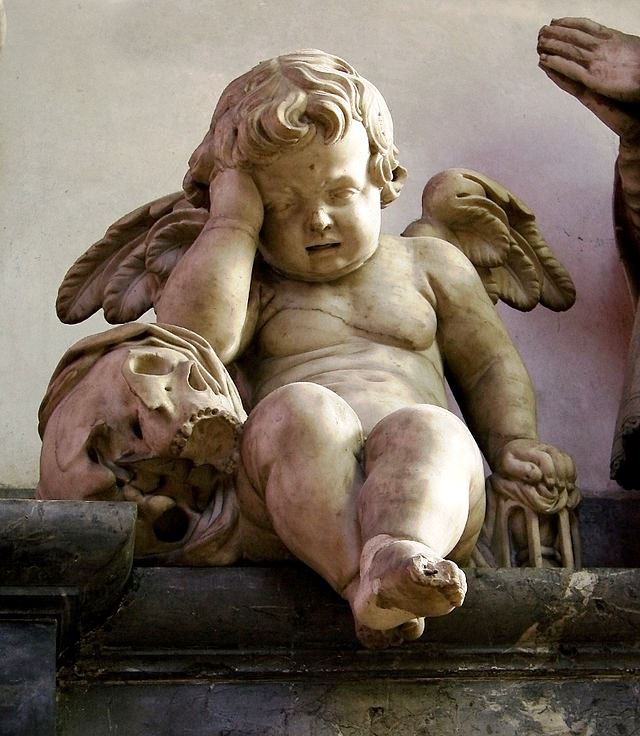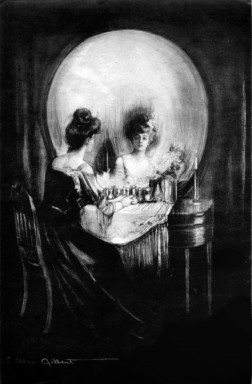
I’ve been trying to motivate myself to write a reflection on 2016 since before the year met its end, but every time I came close to clearing out a recess of my mind for contemplating the year’s ordeals, I was overwhelmed by creepy-crawling asphyxiating fatigue, a paralyzing awareness of the seeming futility of my own existence that until now I have been woefully unable to alchemize from blank stares, the urge to spend an hour hitting my head against the desk, into a coherent piece of commentary. I’ll admit it: in 2016, I did a solidly awful job of attending to The Arts. I’m sorry. The imminent cataclysm promised by the rise to power of the living caricature of a white supremacist misogynist sex predator robber baron fascist had me mildly distracted. What I can recall about 2016 is that the year’s passage brought with it the demise of several iconic male artists, their deaths sparking massive collective paroxysms of performative Internet grief and dizzying outpourings of panegyric, laurel after laurel pinned to the righteous skulls of the departed.
Men died, everyone was heartbroken; I was vexed.
January 10, 2016 — R.I.P. David Bowie
April 21, 2016 — R.I.P. Prince
November 7, 2016 — R.I.P. Leonard Cohen
Each man: a legend. A hero, a beacon, et cetera. A man dies and, absolved of everything, he is made a god. We lift him up to the pantheon. And so it is, one more man installed in that crowded white room composed of clouds and gilt, Olympus, our Hall of Idols. Praise be to him. And him, and him, and him, and him….
I declined to take part in the public funerals of these men, as I do not participate in the public mourning of any Great Men, since, as should be entirely obvious at this point, I am skeptical of the concept of “Great Men” altogether. The reason for my skepticism is that I presume, however Great they may have been at whatever it was they applied themselves to as Men, there’s a 99% chance that they proceeded through their lives in blithe and faithful adherence to the imperatives of patriarchy. They may have treated women like (or represented women as) toys, celebrated phallocentric sexuality, generally behaved in accordance with the principles of male supremacist, masculinist ideology, or they may simply have failed to challenge their own power as male humans within a male-dominated social universe. In any case, as I wrote about David Bowie last January, these men were Men. I do not see how it could possibly be prudent for me, as a feminist and as a woman, to devote my time//energies to the commendation of already highly regarded men who most likely would have viewed me as a dollop of irrelevant fleshiness most properly suited to prancing around in a music video or, best case scenario, starring as muse, my task the inspiration of masterful feats of dreamy poeticism (note to muses: nudity is consistently inspiring).
Disinclined to deify ever more men I have bones to pick with the dead.
David Bowie had sex with a girl-child because he could; he considered himself entitled to that high-grade swank sex as a member of the male elite. He was also accused of rape. Yet these are historical particulars that warrant pooled amnesia. Women are not to challenge his coronation, for the pop star sometimes wore feminine outfits and played at queerness; he was liberated and a liberator, of sexuality, hence of women (please recall, in patriarchy, women = sex, sex = women). Instead we the women are to etch loveletter paeans and genuflect as per standard procedure.
One of Prince’s most popular songs draws on the timeless woman-as-car metaphor in order to chastise a woman for her promiscuity and convince her that she would be better served by accepting him as her sole possessor, rather than speeding from curb to curb. He charges the subject of the song with having a body “on the verge of being obscene,” including “an ass like [he’s] never seen.” But we are not to declare this sexist bullshit because, like Bowie, Prince was also an appreciator of ruffled feminine frippery and queer posturing – although later he became a Jehovah’s Witness and publicly denounced homosexuality – and because, by expressing his love of sex with women, his work allegedly exalted female sexuality. We’re accepting here, naturally, that female sexuality can be described by a man and corresponds to the ways that men view and seek to use females. That a woman’s sexuality reduces to men’s desire for her, men’s use of her. Through the loud-n-proud sexual objectification of women, Prince liberated female sexuality, much in the same way that Bowie liberated our femininity by means of his own conscious cultivation of a feminine image.
Bowie, a man, taught women and girls it was okay to be feminine, since he, a man, embraced femininity. Prince, a man, taught women and girls it was okay for them to be sexy, because he wanted to have sex with them. [ this is not read as predatory, I suppose, because Prince too was in touch with his “feminine side” and only conventionally masculine men exploit women? a nice idea. also totally false. ] We can conclude that women need men to show us how and who to be, as women, and what is okay for us. We are to thank them for their guidance. How lucky we have these Great Men to show us how to do it right.
This brings us to the third unbearable male death of 2016, that of Leonard Cohen, who in 1977 released an album entitled Death of a Ladies’ Man (must-hear track: “Don’t Go Home With Your Hard-On”). If only! Cohen persisted in living for decades and only died when he was 80, by which time he had established himself as an institution, beyond censure, one of these living-legend singer-songwriters promoted to oracle status whom we distrust only at our peril. He was deep, very deep; he unlocked the secrets of the human heart and human spirit, the sublime and the abyssal. [ as if a man’s concept of reality could encompass “universal truth”—no need to consult the subalterns for input. ] Cohen crooned melancholic songs that carried within them quiet calls for kindly angel girls to climb into his bed and warm him through those long, aching nights that are the onus of wise men. He was a man who longed for love. Love, specifically, in the form of a “little darling” woman with a perfect body (“really such a pretty one”) who would give herself over to him, to heal the wounds inflicted by the cruel edges of his own genius.
Listening to Leonard Cohen, even thinking about him, almost makes me wish I had one of those (problematic) Male Tears mugs. Almost. Am I being insensitive? Probably. But I am a woman and I owe men nothing. I especially do not owe men my reverence.
We need no more male gods.
At this moment in history, in the United States, on this hellish zone the Internet, there is much lip service paid to “de-centering” whiteness, maleness, heterosexuality, the perspective granted by a first-world, upper or middle class position in society. One would imagine that this “de-centering” would involve pursuing, highlighting, amplifying the voices of the non-white, the non-male, the non-hetero, the non-rich, as well as scrutinizing the cultural productions and expressions of those who are white, male, hetero, upper class. Such de-centering is an initiative I can get behind. Unfortunately, it is a principle only selectively translated into practice, most often to dismiss the work of so-called “white feminists.” It toppled straight out of mind when David Bowie, when Prince, when Leonard Cohen died. There was scarce thought given to the significance of these men’s maleness, or whiteness in the case of Bowie & Cohen, or the fact that they were all, at the end of the day, straight men who objectified and fucked women and made the discussion of this objectification//fucking a significant element of their artistic output. Rather, each one of them was suddenly every single human being’s hero. Prince died and an anti-racist intersectional feminist collective who claims de-centering as its fundamental prerogative plastered their Twitter and Facebook sites with images of the man glamorous in velvet and glitter, as if in declaration: PRINCE, ULTIMATE FEMINIST. Prince was a Christian heterosexist who compared women to cars. He should be no one’s ultimate feminist. Dressing in frills and looking pretty, regardless of your sex, does not make you a feminist; feminist politics make you a feminist. It’s really that simple. Bowie and Cohen were similarly glorified, and by bizarro mesmeric tricks of spin were even re-framed as feminists or at least as individuals who somehow managed to transcend gender (through sheer force of male privilege?) and thus could speak for and to all of us, man and woman alike.
I shed not a tear. We need no more male gods.
The de-centering of whiteness//maleness//the perspective of the master class is incompatible with uncritical idolization of men. To idolize men feeds male power, which is power that they have over us. A pantheon of male idols means a pop-cultural imagination with men’s perspective at its core. In other words, male gods sire a male-dominated culture. In worshipping them, trusting in their wisdom as if it were meant as a gift to us and not another tether, we betray ourselves, judging ourselves in relation to men, desiring to be seen by them for the men are the brilliant ones who in seeing us can make us real; we learn to see ourselves as they see us, we believe their perspective which they call Knowledge is truer than what we have experienced, we let them speak for us, we repeat what they say though they cannot speak for us because they are our oppressors, we forget to upraise our sisters who, for they are not male, will not be as readily immortalized—we collaborate in our own subordination. These men do not represent us; what they made never served us, was not intended to strengthen us, and when we look up to them, gazing wide-eyed batting lashes to where their faces glitter on high embroidered in starlight across the indigo of cultural firmament, we must know that, from where they are, they are looking down on us. As they always were. 2016 is the year that I committed myself to killing my idols. R.I.P. Great Men.
